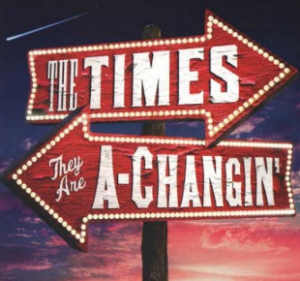My university is celebrating 50 years in the business (1965 – 2015) and as such, I thought it would be a timely opportunity to showcase just how much the secretarial/clerical and administrative function has changed in the last 5 decades. During that time, I’ve not only studied here, but through both varied, temporary and permanent posts, I have contributed over 18 years of secretarial, clerical and more latterly, senior administrative expertise to the institution.
During my tenure, I’ve witnessed massive transformations in Higher Education, including changes to funding, increased student numbers, governance, increased corporatisation and commercialisation and the adoption of managerial models which has affected staff at all layers.
If you look at the workforce that I’m talking about, you will not fail to notice that we are a predominately feminised workforce and this can partly go some way in explaining our lack of visibility and some of the problems encountered along the way by us (e.g. a belief that we are not interested in academic endeavours or systems. Unfortunately, some outdated stereotypes also exist (see my blog ‘Just an administrator‘) but at least in the 21st century, we are able to challenge some of the long-held masculine views/behaviours on the definitions of female administration roles (i.e. being administrative and being female – i.e. not male and not academic!)
Many universities in the UK were established in the 1960’s and along with them, the roles of the university secretary and clerical/administrative worker were borne. Such roles were referred to as “non-academic”, yet the mere use of the word “non” conjures up negative associations and leads to the labelling and definition of a whole section of the work force in describing what we “are not”, rather than what “we are”. Back then, the university secretary/clerical worker was very much expected to operate in a subservient, supportive role to the academic community. Role holders were expected to be seen and not heard, much like the women and children from the Victorian era. Essentially their role was to look after the academic, type correspondence and make the tea. Secretarial/clerical staff performed tasks such as typing, often supporting just one academic. There were no student recruitment, marketing or international offices. Finance and personnel departments were very small and invisible to the academic community.
Indeed, the role of the secretary/administrative assistant has enjoyed something of a renaissance lately in popular culture – take for example the characters of Joan Holloway and Peggy Olsen, the competent secretaries at the fictional advertising agency in Mad Men set in the 1960’s in the States. Both rise up through the ranks to become meaningful employees – one to become a partner in the agency, one to become an advertising professional (on a perceived equal footing with the male characters). Likewise, think of the term “Secretary of State” where the word secretary defines a senior official of the federal government of the USA!
Interestingly enough, the word secretary is a unisex word and isn’t defined by gender, although it is stereotyped to be female by association. The title of secretary was originally used by military leaders, heads of state, and even popes to refer to their most trusted confidants – to the ones they could trust and rely on without reservation. Secretaries were set apart from others and known to be favoured by their respective leaders. Later, secretaries were used in the same sense by professional and business leaders.
If we look at the history and significance of the word “secretary”, it can be traced to being used in Middle English as early as the sixth century and comes from the ancient Latin word secretumi, meaning keeper of secrets!
Next month, part 2 of this blog will examine the evolving professional role of secretaries in the 1930’s, 50’s, 80’s and 90’s through to the digital age.

